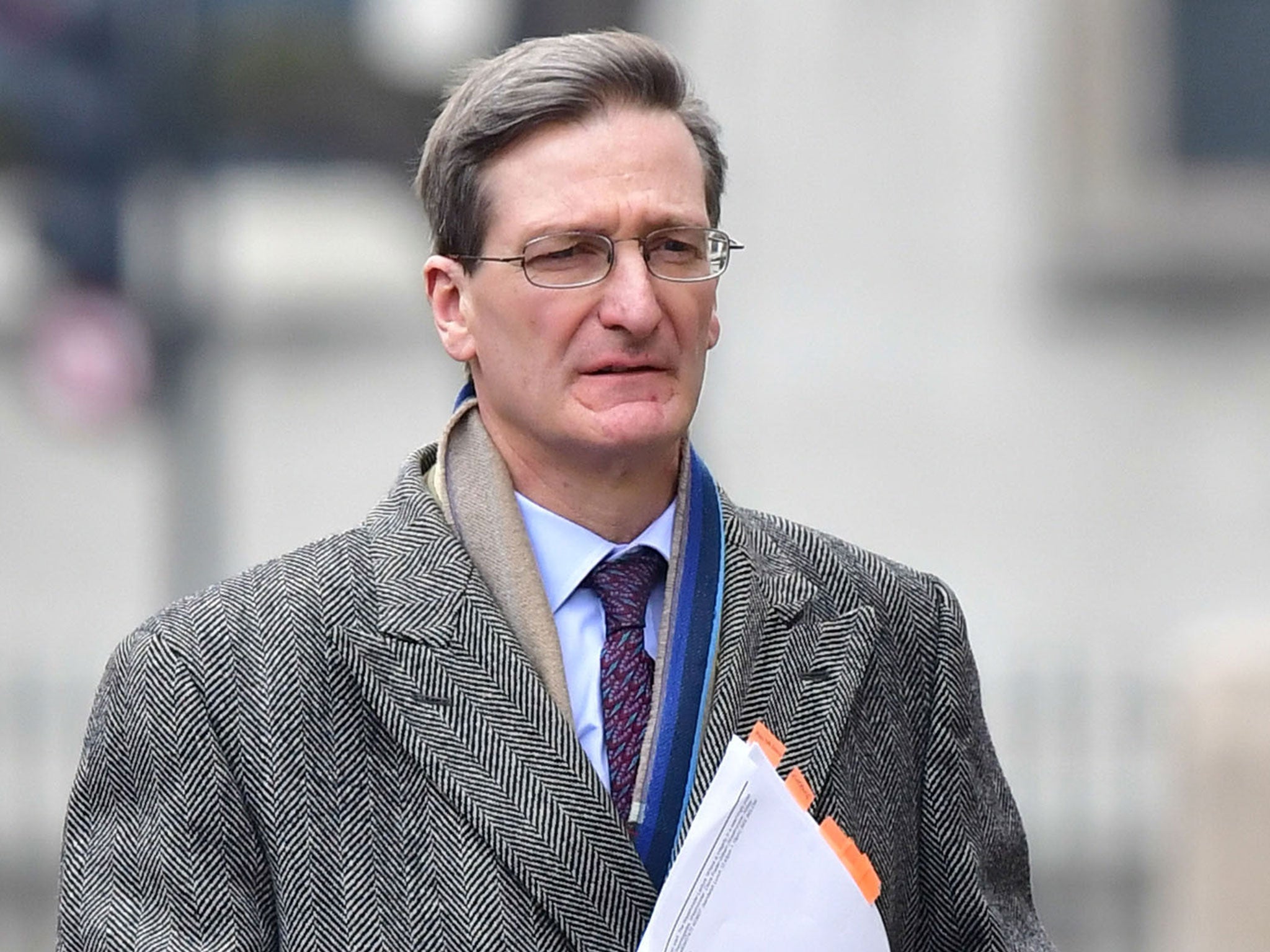Brexit: Second referendum required before Britain can leave the EU, legal challenge claims
The 2011 ‘referendum lock’, introduced by David Cameron, prevents any significant change to relations with the EU without the public’s say

The law requires a further referendum before Brexit can go ahead, say campaigners who are mounting a legal challenge to slam the brakes on the UK’s withdrawal from the European Union.
The case will argue that the 2011 “referendum lock” introduced by David Cameron – preventing any significant change to relations with the EU without the public’s say – applies to the Brexit talks.
It makes the negotiations illegal without a second referendum because the planned transition period is likely to mean a big transfer of powers to Brussels, according to the anti-Brexit Best for Britain group.

The stance has drawn support from Dominic Grieve, the former Conservative Attorney General, who said: “This raises an important constitutional issue.
“Parliament provided for a referendum mechanism in the 2011 Act to ensure the public should be consulted on any significant EU treaty change.
“The terms of our departure and of transition are going to have major implications on our constitutional framework as and when they come into force.”
The legal challenge will raise the hopes of pro-EU supporters of a referendum on Theresa May’s deal from the negotiations – now backed by both John Major and Tony Blair.
The “referendum lock” was conceded by Mr Cameron to pacify Eurosceptics in the Conservative party, long before the first Brexit referendum was planned, but could now be used to thwart Leave supporters.

The EU Withdrawal Bill, currently before Parliament, will scrap the 2011 Act – but until it does, the case will argue, the UK is negotiating a deal with the EU under existing British law.
Eloise Todd, the head of Best for Britain, said: “The 2011 Act brought in assurances that any significant changes to the UK's relationship with the EU would be put to a people’s vote.
“This case is about giving people the right to make sure their voice matters on the biggest change in our country’s direction since the Second World War.”
Labour peer and former cabinet minister Andrew Adonis added: “The Government is trying to pull a fast one and repeal their existing legal obligation to hold a referendum on the Brexit deal without anyone noticing.
“Well, people have noticed – and I will be seeking to stop this dishonest move in the House of Lords later this month.”
The High Court move will use the tactic that gave activist Gina Miller her landmark victory, which required Parliament to authorise the triggering of the Article 50 exit clause.
It will make the point that Brexit will give the EU the final say over whether Britain can remain membership of various EU bodies – over medicines, transport and chemicals – which Ms May wants to stay part of.
The move came as the Chancellor declined to say that Brexit is “worth it”, as he insisted the Government had yet to model the economic effects of its hoped-for exit deal.
“The British people have decided that we are leaving the European Union and that is what we are doing. Our job is to make sure that we get the best possible deal for Britain,” Philip Hammond told the BBC Andrew Marr Show.
The Government has dismissed its own leaked forecasts warning of a severe economic hit from leaving the EU, on the basis they did not model the preferred outcome.
Asked if that exit deal Britain is seeking has been studied by Treasury officials, Mr Hammond said: “Not yet – we haven’t even embarked on the negotiation yet.”
Join our commenting forum
Join thought-provoking conversations, follow other Independent readers and see their replies
Comments
Bookmark popover
Removed from bookmarks